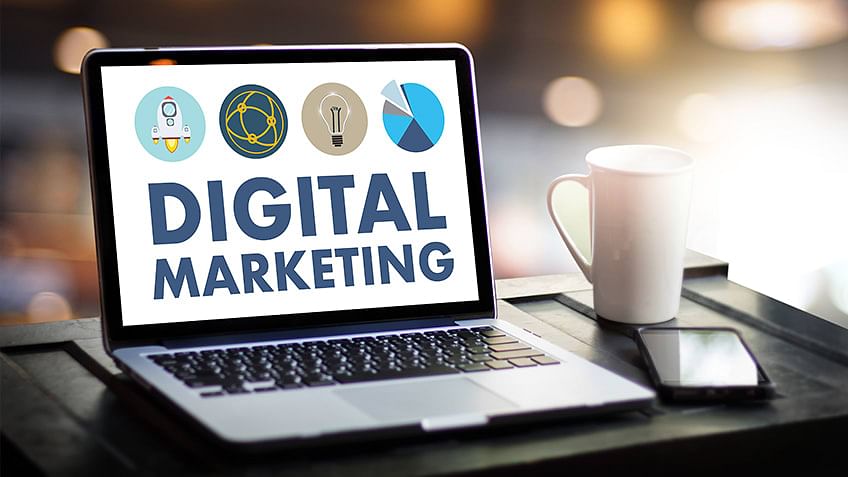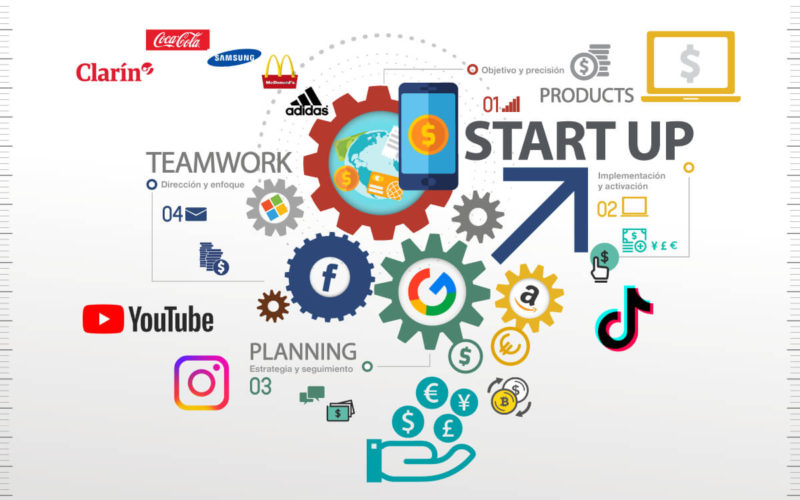Evaluation of the agency’s approach to regional SEO is critical when looking into a digital marketing agency in Asia. Here is a list of tips including pros and cons and the reasons they are crucial.
1. Examine your skills in local search engines (Baidu Naver Yahoo Japan)
SEO strategies employed by search engines like Baidu in China, Naver in South Korea and Yahoo Japan vary significantly from Google.
Pros : Availability on major search engines for specific regions.
Cons: Agencies without local expertise can use generic Google-centric methods, limiting success.
2. Check for Knowledge of Language Specific Keyword Find out more about
The reason it is important: Studying regional keywords goes beyond translation. It should also take into account the local search patterns and the nuances of language.
Advantages: Localized keywords can drive more organic traffic.
Cons: Poorly translated or insignificant keywords may cause a misalignment to the intention of the user, which can result in wasting precious resources.
3. Take a look at their Localized Content Creation Approach
Why localized content is important it is because it resonates with viewers, and increases rankings because local search engines prioritize appropriate, native-language content.
Cons: Doesn’t create trust with local audiences.
Cons: Unoriginal content that is poorly localized, or generic content can result in low engagement or even a negative impression of the brand.
4. Check for Competitor Analysis within Regional Contexts
Why it is important: Regional competition often is characterized by different strengths and strategies. Understanding competitors’ strengths and weaknesses can help you establish your own brand.
Pros: Finds opportunities to beat your local competition.
Cons: Lacking knowledge of regional competitors can result in missed opportunities or a poor position.
5. Ask About Mobile Optimization Strategies
Why is it important: Many Asian markets are mobile-first, or mobile-only with users heavily relying on smartphones for search.
Pros: Mobile SEO leads to higher ranking and better user satisfaction.
Cons: If you ignore mobile optimization, you could turn off a large portion of your customers.
6. Study specific SEO strategies for regional markets
Why is it important: Regional platforms may have unique technical needs. For example, Baidu prefers fast-loading websites hosted in China and rewards sites with ICP licenses.
Pros: A good technical setup can boost rankings and increase accessibility to websites.
Con: If you don’t follow the technical standards of your region in SEO, your performance will be sluggish even with strong content.
7. Examine Link-Building Strategies to Improve Relevance to the Region
Why it matters: Link-building strategies in Asia should focus on local domains that are of high quality (e.g. Chinese domains for Baidu, or Korean domains to Naver).
Cons: Doesn’t establish authority in certain regional markets.
Cons: Local SEO performance can be affected by global link building methods.
8. Discuss Experiences with Local Directories and Listings
Why is it important: Many Asian search engines favor local directories for business listings, such as Daum Maps (Korea) or Baidu Maps (China).
Pros: Improves the visibility of local searches and improves credibility.
Cons: This step can impact local results for searches.
9. Check if you can track regional SEO metrics.
Google Analytics does not use metrics such as Baidu Analytics, Naver Web Analytics or Naver Analytics. Proper tracking helps ensure campaigns are running in line with expectations.
Pros: Provides real-time insight specifically tailored for regional platforms.
Cons: Agencies who are not familiar with regional tools may overlook critical performance data.
10. Seek out adaptability to regional Algorithm Updates
Why is it important What is the significance of it? Search engines from different regions regularly update their algorithms, which impact rankings. The agencies must stay on top of these changes.
Pros: Ensures your campaigns remain competitive despite updates.
Cons: Agencies that do not have local presence might have a difficult time adjusting quickly.
Takeaway:
To create a robust regional SEO strategy for Asia, you need to be aware of local search engines and the standards as well as cultural nuances. Agencies with a proven capability to adjust and localize can assist you to gain an edge in complex and diverse markets. View the most popular digital marketing agency in asia for more info including website and marketing company, digital and marketing, marketing and digital marketing, digital marketing manager, near me digital marketing agency, social media manager agency, digital marketing for social media, digital marketing & strategy, agency social media marketing, digital marketing company and more.

Top 10 Tips From The Compliance And Regulatory Expertise
Compliance with local regulations and laws is essential when choosing a digital advertising agency in Asia. Different countries have strict and varied guidelines regarding privacy of data as well as advertising standards and specific guidelines for platforms. Here’s why each tip matters, the pros, and cons.
1. Learn about local laws that govern privacy of data
What’s the significance? Many countries, including China, South Korea and Singapore, have strict laws on data protection (e.g. China’s Personal Information Protection Law, South Korea’s PIPA). Failure to comply could lead to severe fines.
Pros: Protects you from criminal risks, penalties, and fines.
Cons: Agencies who don’t understand the laws governing data can expose you to liability.
2. Check your knowledge in Advertising Standards
It is crucial to note that each country has its own advertising laws. For instance, Japan’s Act against Unjustified Premises and India’s ASCI Guidelines. The compliance with these laws ensures ethical business practices.
Pros: It protects you from getting your campaign banned or taken down for violations.
Cons: Ignorance of these guidelines can result in the loss of resources and damage to reputation.
3. Verify your knowledge of the E-Commerce Regulations
What is the significance of this regulations on advertising on e-commerce, including product claims or pricing transparency, differ by region.
Pros: Ensures your campaigns align with e-commerce legal specifications.
Cons: Failure to abide with the regulations may result in platform restrictions or complaints from consumers.
4. Evaluate the level of compliance expertise specific to Platforms
What’s the point? Platforms, such as WeChat, Bilibili, or Douyin insist that their policies on advertising be adhered to.
Pros. It prevents ads from being blocked and improves performance on major platforms.
Incons: A lack of knowledge could cause unsuccessful campaigns, or account suspensions.
5. Cross-Border Marketing Rules: Make sure that your customers are knowledgeable about these rules
It is crucial to note that if your advertising campaigns are spread across several Asian countries, you’ll be required to comply with different regulations governing international advertising and data-sharing.
Benefits: Lowers the burden of compliance across multiple jurisdictions.
Cons: A lack of knowledge about cross-border campaigns may hinder the ability to increase the size of your campaign.
6. Investigation of their Compliance with Intellectual Property (IP Laws)
Why it matters: Unauthorized copyrighted use could result in legal disputes, especially in countries with strict IP enforcement, such as South Korea or Japan.
Pros: Protects brand from copyright infringement.
Cons: Not following IP laws could damage your brand reputation and your finances.
7. Confirm that they stay updated on regulatory changes
Why it is important: Asian markets often update their privacy and advertising laws (e.g., recent amendments to China’s Cybersecurity Law). It is essential to stay updated for long-term success.
Pros: Reduces the risk of sudden interruptions caused by changes in regulations.
Cons: An outdated knowledge base could result in campaigns that are not compliant.
8. Verify that Influencers are in compliance with Marketing
Why it matters: Regulating influencer marketing is different in every country and each platforms.
Pros: It ensures honest and transparent relations with influencers.
Cons: Failure in compliance could lead to losing credibility and/or fines.
9. It is possible to test their knowledge about censorship of content by testing their knowledge
The reason it’s so important The censorship of content in certain Asian countries is very strict, including China and Vietnam. Subjects that are considered sensitive should be handled with care in order to avoid bans.
Pros : Reduces the risk of takedowns and assures a smooth execution of campaigns.
Cons: Inadequate awareness could result in wasted ad spend or reputational harm.
10. Find evidence of a legal Compliance team
Why it matters The agencies with compliance experts in-house or legal teams are better able to handle complex regulations.
Pros Reduces your internal staff’s workload to ensure the compliance of your staff.
Cons: Smaller agencies might not have this expertise.
The most important takeaway:
The expertise of an agency’s compliance and regulatory frameworks safeguards your company from legal, financial, and reputational risk while making sure that your operations run smoothly. To maximize your campaign results, prioritize agencies that have proven experience with regional laws, platform specific policies as well as international regulations. Have a look at the recommended bilibili marketing for site tips including near me digital marketing agency, marketing agency content, digital marketing website, agency for marketing, website marketing firms, digital marketing and social media marketing, growth agency, social media marketing company, marketeering group, services for digital marketing and more.
